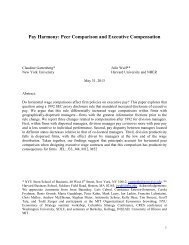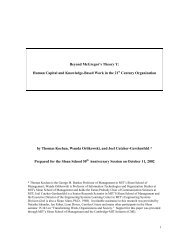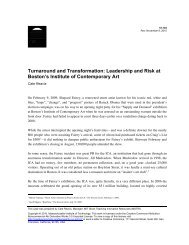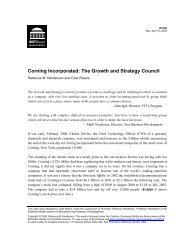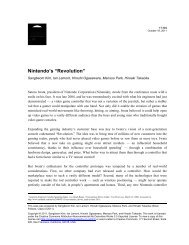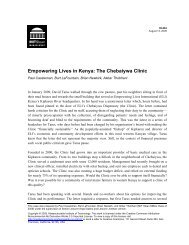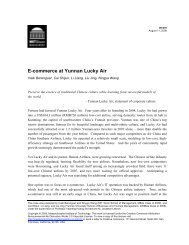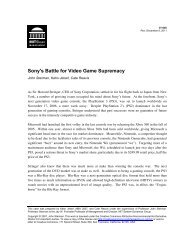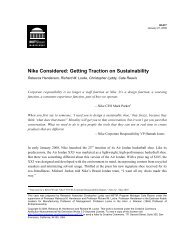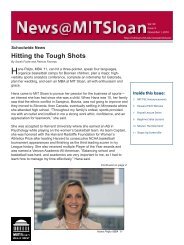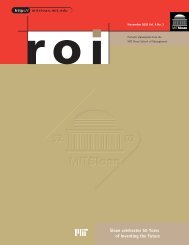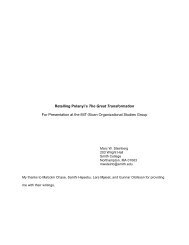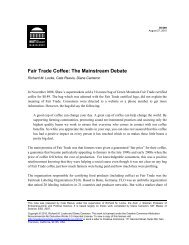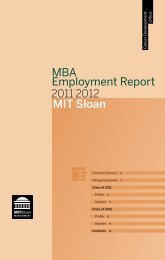Understanding earnings quality - MIT Sloan School of Management
Understanding earnings quality - MIT Sloan School of Management
Understanding earnings quality - MIT Sloan School of Management
You also want an ePaper? Increase the reach of your titles
YUMPU automatically turns print PDFs into web optimized ePapers that Google loves.
5.5.1 Incentives when firms raise capital<br />
The premise <strong>of</strong> this literature is that the cost/benefit trade-<strong>of</strong>fs <strong>of</strong> accounting choices change<br />
during periods when a firm raises capital. Greater litigation risk, for example, may increase the costs<br />
<strong>of</strong> opportunistic accounting choices. Greater utility associated with the availability or price <strong>of</strong><br />
capital may increase the benefits <strong>of</strong> opportunistic accounting choices. Hence, the firm’s accounting<br />
choices, and thus its <strong>earnings</strong> <strong>quality</strong>, may differ when a firm is raising capital.<br />
A firm’s initial public <strong>of</strong>fering (IPO) is a commonly examined setting. Friedlan (1994) and<br />
Teoh, Wong, and Rao (1998) find that firms have income increasing discretionary accruals prior to<br />
setting the <strong>of</strong>fer price in an IPO. Aharony, Lin, and Loeb (1993) find little evidence that accruals<br />
are abnormally high prior to a firm’s IPO. To the extent there is evidence suggesting <strong>earnings</strong><br />
management, they find it more prevalent among smaller and more levered firms and those that use<br />
lower <strong>quality</strong> underwriters and brokers. Teoh, Wong, and Rao (1998), however, find unusually high<br />
abnormal accruals in the IPO issue-year and lower allowances for doubtful receivables. Similar to<br />
Aharony et al. (1993), Morsfield and Tan (2006) find that monitoring is a mitigating factor; IPO-year<br />
abnormal accruals are lower for IPO firms with venture capitalists than for other IPO firms.<br />
We also observe evidence outside the IPO setting that firms’ accruals choices are affected by<br />
capital market incentives. Haw, Qi, Wu, and Wu (2005) find that Chinese firms that meet or just<br />
miss the 10% ROE requirements to qualify to make a stock rights <strong>of</strong>fering in China between 1996<br />
and 1998 have higher accruals. Erickson and Wang (1999) find evidence <strong>of</strong> income increasing<br />
<strong>earnings</strong> management via accruals prior to stock-for-stock merger agreements. In a management<br />
buyout (MBO), when the incentive is to understate performance to justify lower <strong>of</strong>fer prices to<br />
existing shareholders, DeAngelo (1986) finds no evidence <strong>of</strong> income-decreasing discretionary<br />
accruals in the MBO year for 64 deals prior to 1982 using the year-over-year change in working<br />
109



